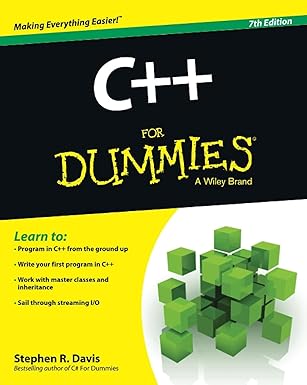Stack Implementation in C
This is a C program that simulates stack operations graphically and in text mode. The program uses...
Read MoreThis is a C program that simulates stack operations graphically and in text mode. The program uses...
Read MoreThis is implementation of Bayer-Trees, which are normally used for indices of data bases. These routines provide all stuff that is needed to create and destroy; insert, update and delete; load and destroy; search and traverse; check a tree. Sort huge amounts of data by doing a multi-phase sorting on temporary files.
Read MoreThe basic idea behind the Object Oriented Programming is that it deals with the objects. In real life everything is an object and every object has properties and functionality.
Read MoreIf we say that a particular programming language is Object Oriented then it means, the programming...
Read MoreNeoMem allows you to store and organize all kinds of information in a cross between a word processor and database. The interface is similar to Windows Explorer, except that instead of dealing with files on a hard disk you deal with objects in a file. It can be used to store to do lists, books, website passwords, addresses, account information, and collections of all kinds. You can define your own classes for items that you want to store information about, and define properties for those objects. Each object can also store formatted text in a simple word processor view.
Read MoreFunctions are the building blocks of any programming language. In C++, a function is a block of code that performs a specific task. Think of it as a mini-program within your main program, designed to execute a particular operation. Functions are like building blocks that help break down complex problems into manageable chunks, making your code more readable and modular.
Read MoreThis article is about file handling using C programming language. File stores information for many purposes and retrieve whenever required by our C programs. A file represents a sequence of bytes on the disk where a group of related data is stored. File is created for permanent storage of data. C programming language can handle files as Stream-oriented data (Text) files and System oriented data (Binary) files.
Read MoreThe 1998 C++ standard consists of two parts: the core language and the C++ standard library; the...
Read More
